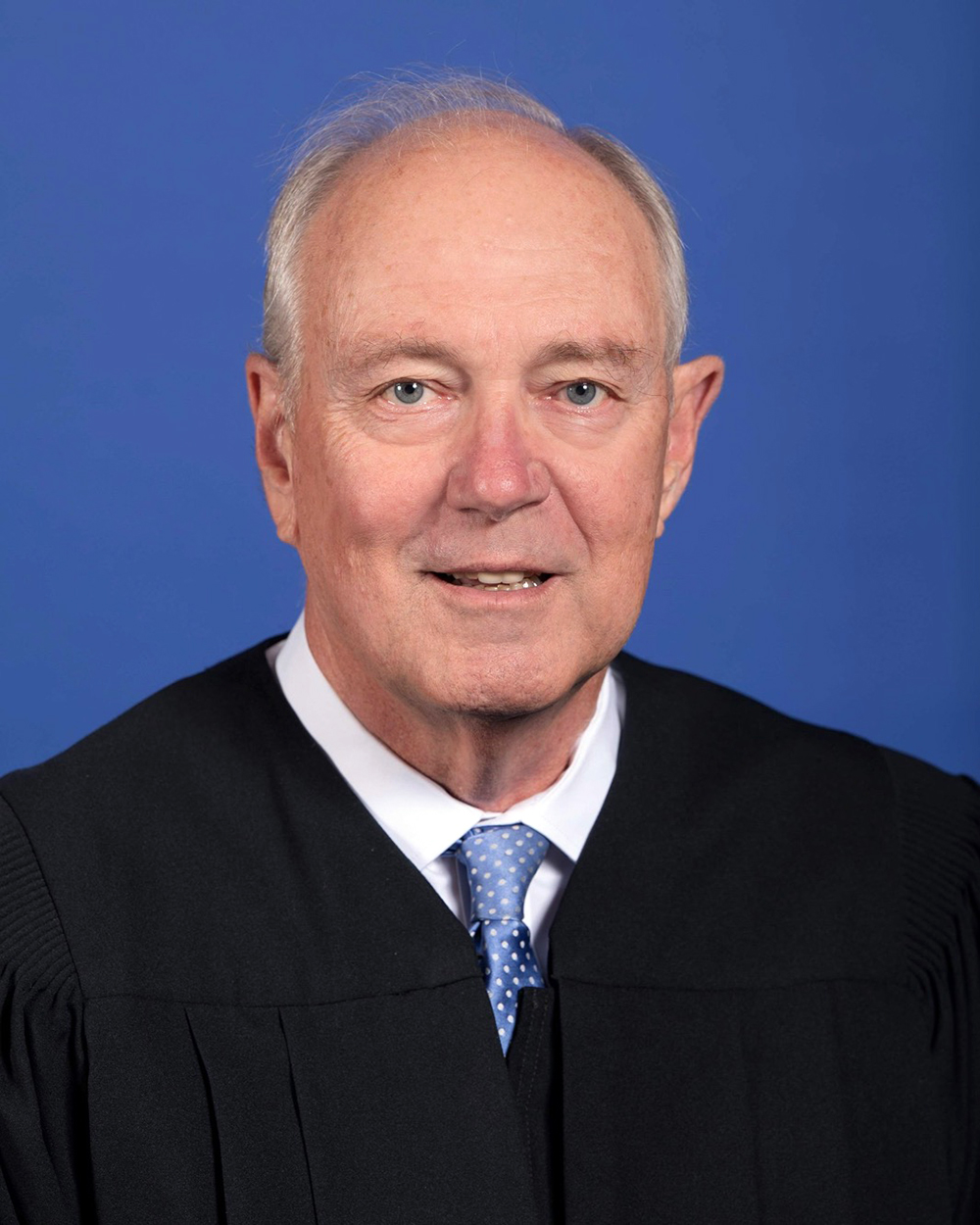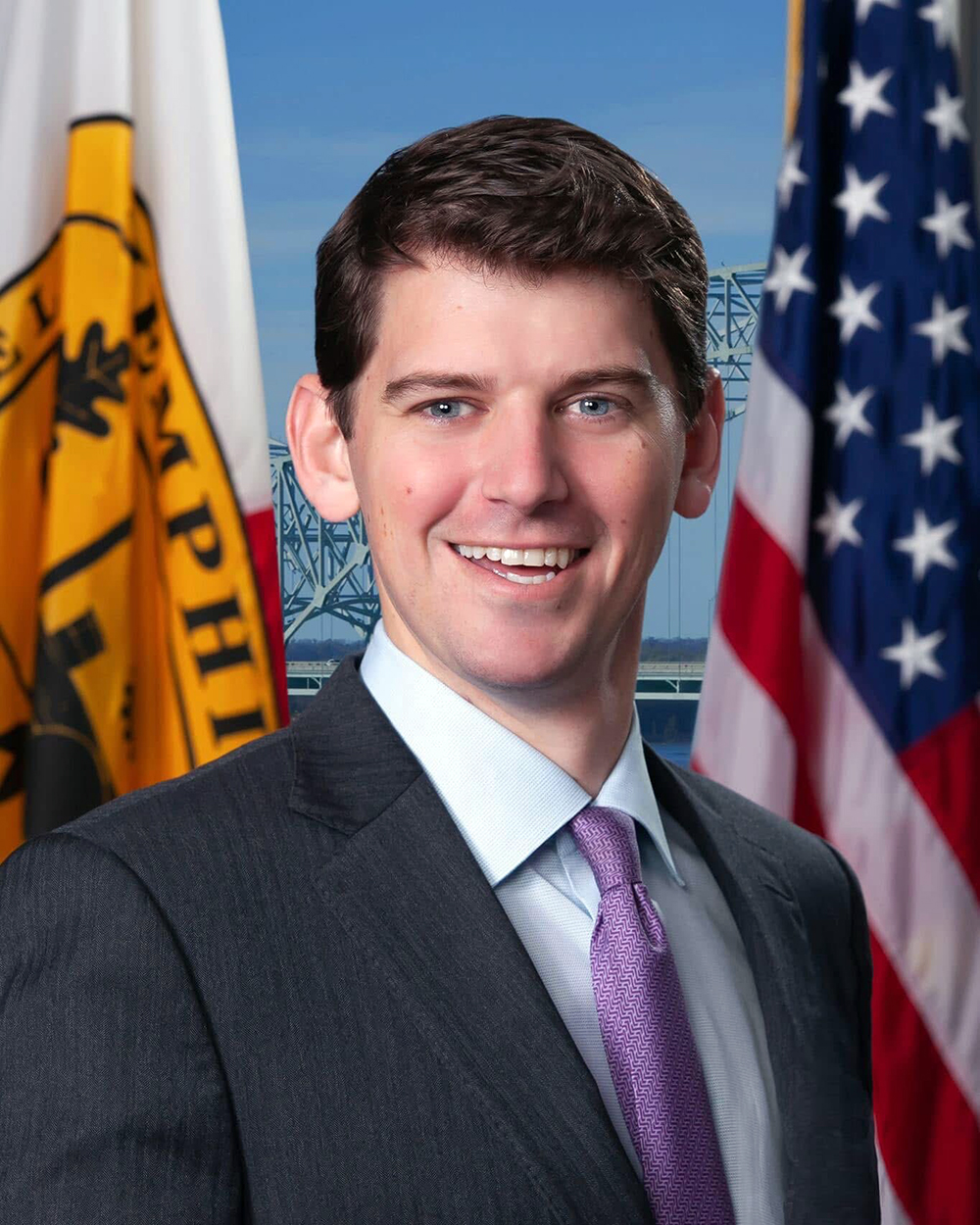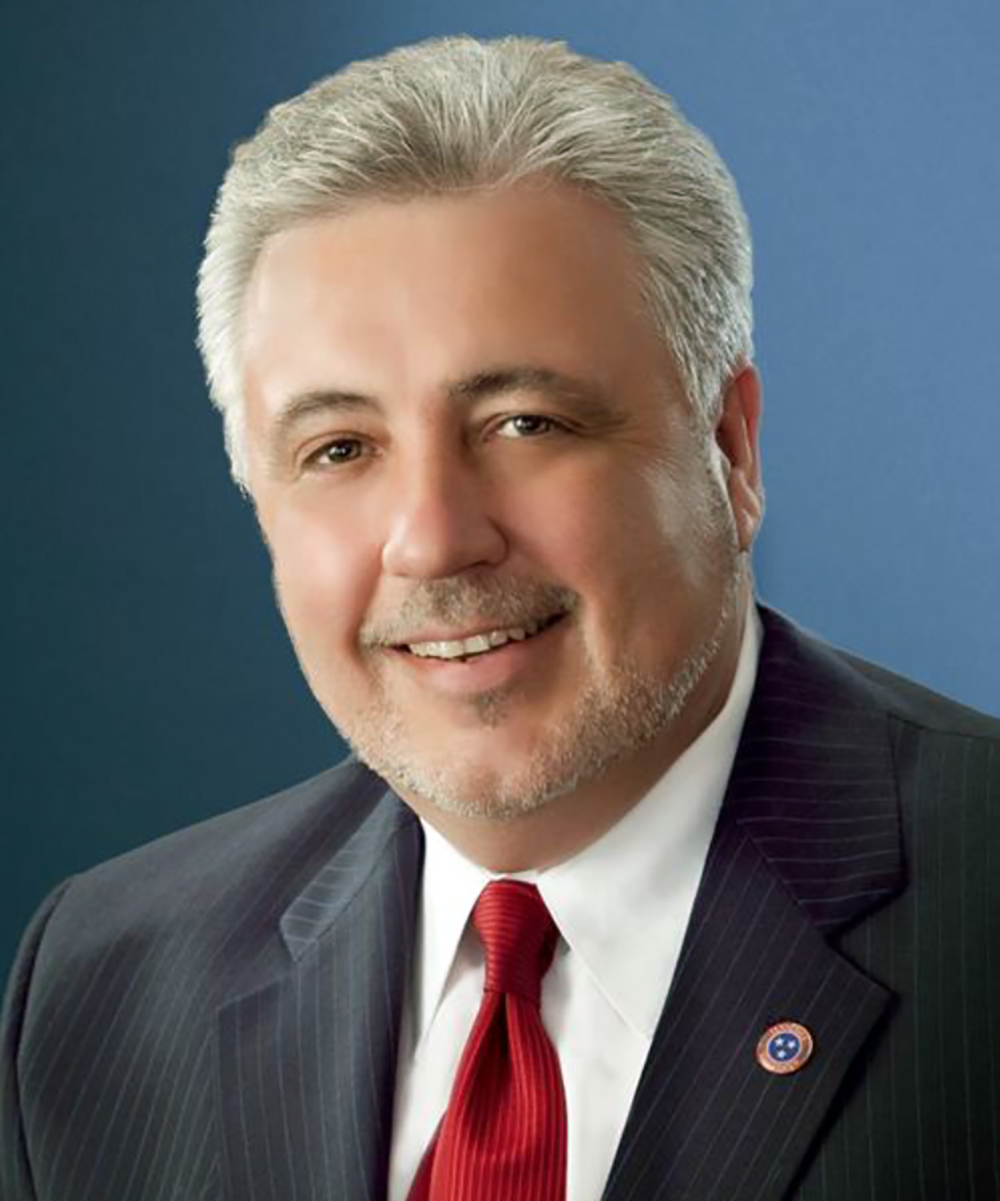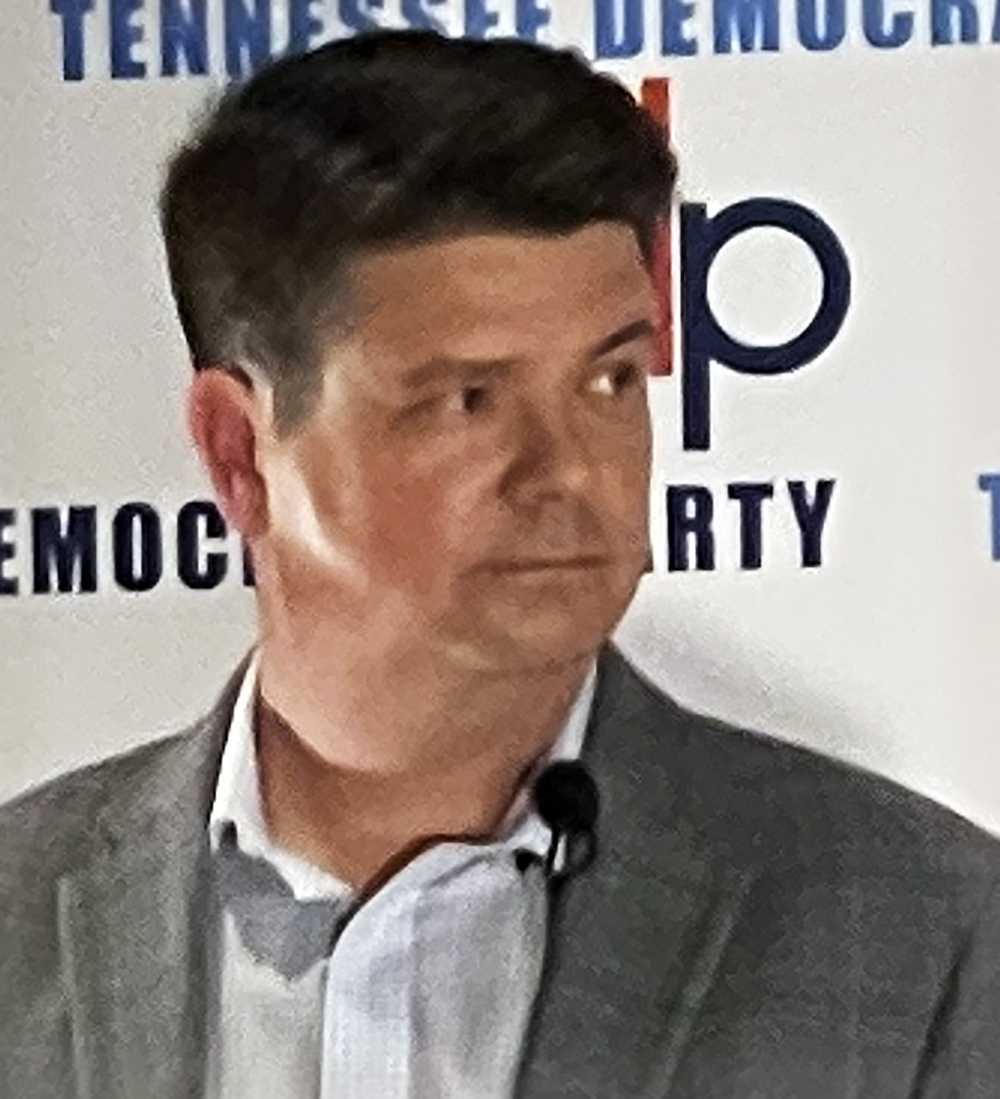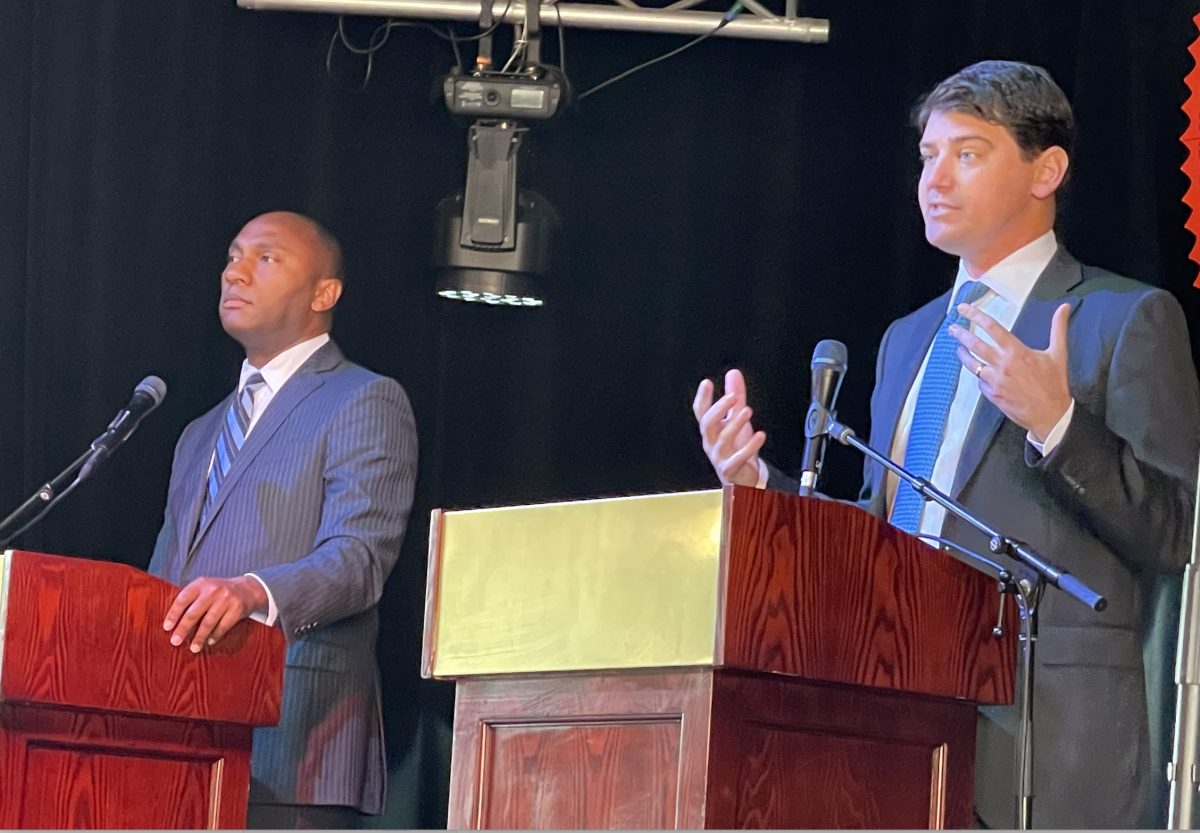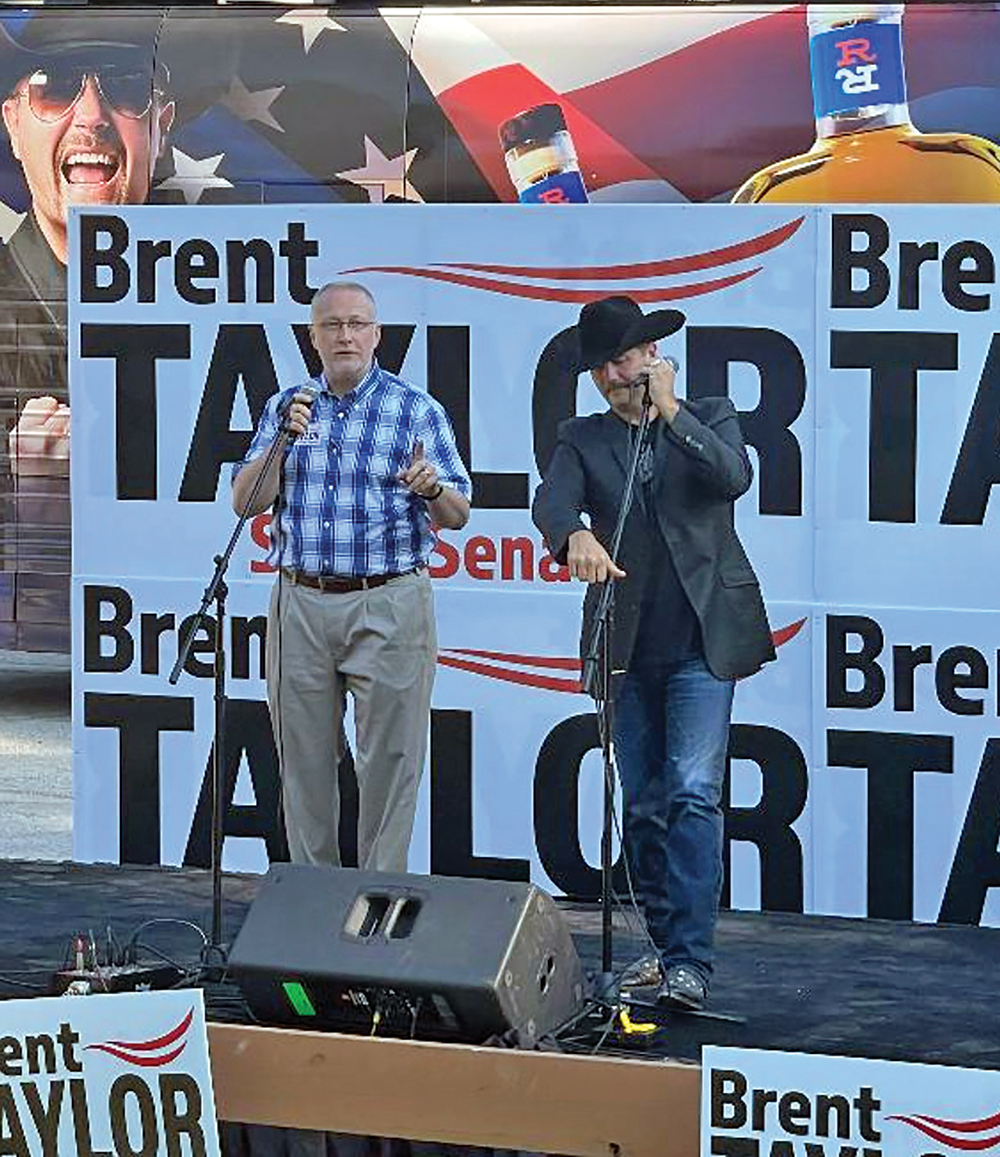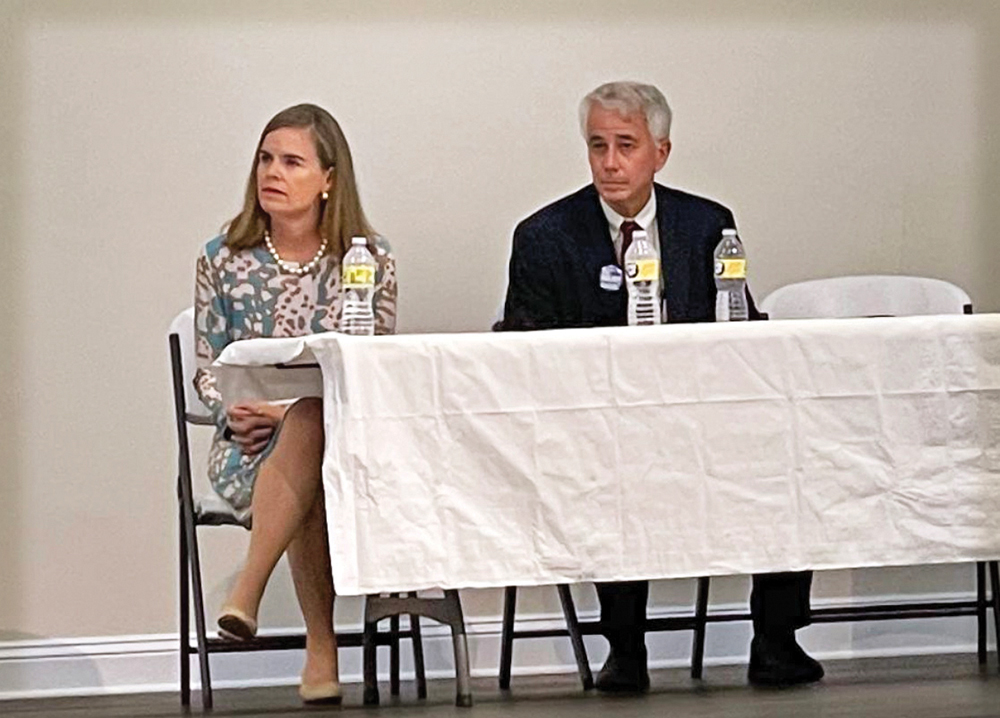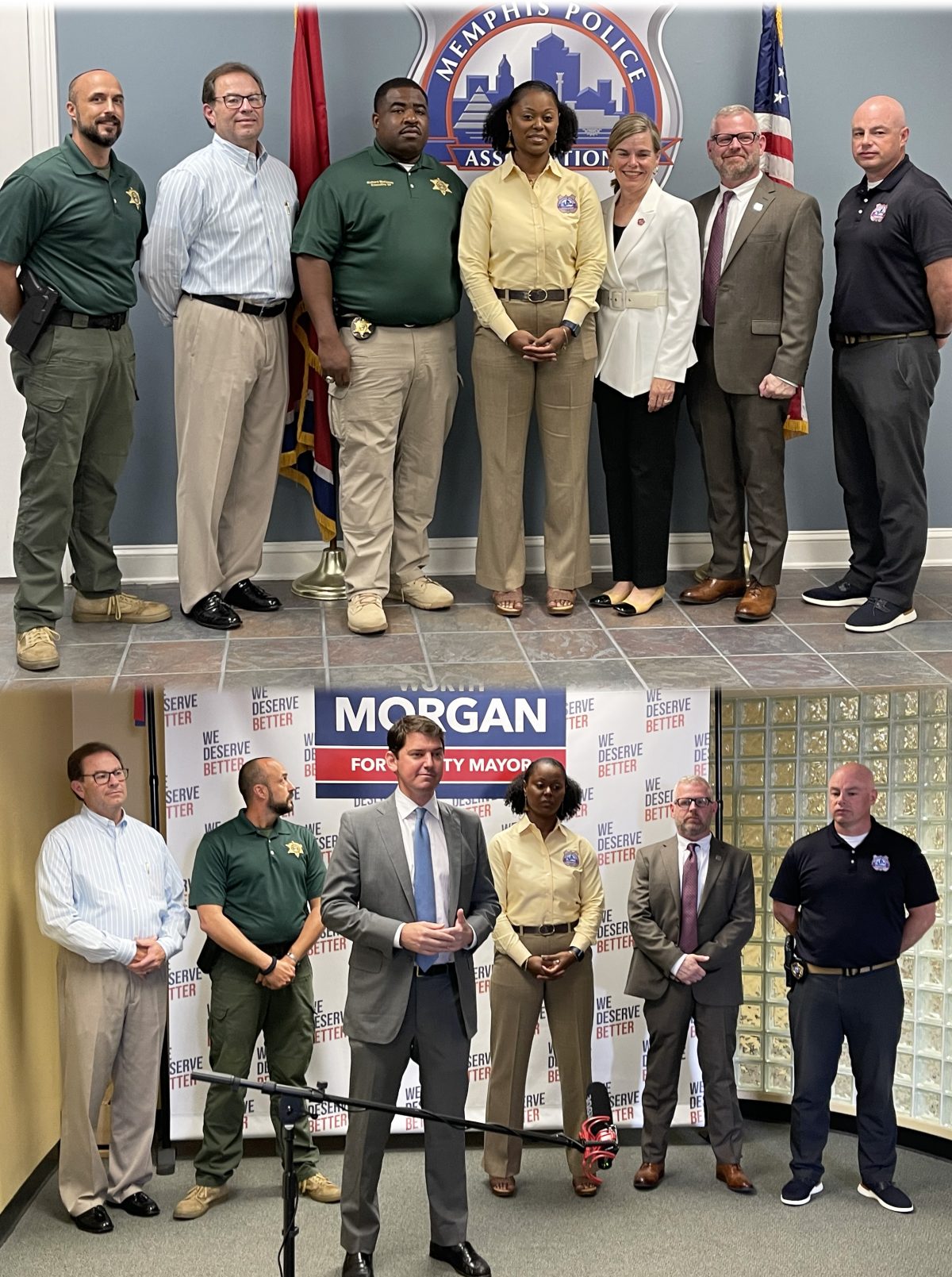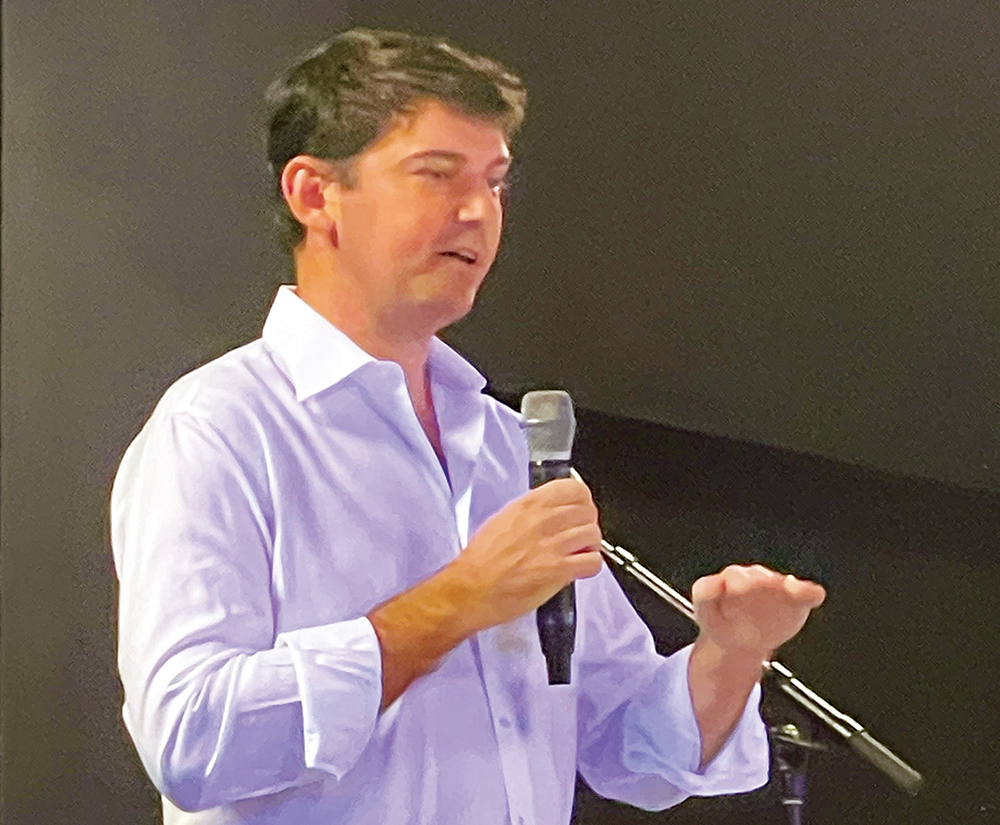“Well,” said one woman as she left The Bluff restaurant on Highland following a Tuesday Rotary club luncheon debate between county mayor candidates Lee Harris and Worth Morgan, “that was a case of Rebecca of Sunnybrook Farm versus Mack the Knife!”
She didn’t specify which was which,and there was abundant antagonism on both sides of the match, but presumably she was assigning the attacker’s role to Harris, the Democratic incumbent who seeks a second four-year term from the voters.
Having won the coin toss supervised by moderator Otis Sanford, Harris opted to go first on the program, and for several detailed minutes, he dismissed his Republican challenger as a neophyte and a lightweight who had shunned positions of leadership and key votes during his seven years so far on the Memphis City Council..
The youthful-looking Morgan responded not in visible anger but with a show of forbearance toward what he said was Harris’ mischaracterization of his record. “Personally, it doesn’t bother me,” he said. “And I know my heart. I know my positions, and so it doesn’t shake or bother me, but professionally, it is disappointing.” That turned out to be a prelude to his own attack on Harris.
“Some of that disappointment that I see today is something that I’ve also seen over the last several years, [when] I’ve been disappointed with Shelby County’s response, especially the mayor’s office response … to the pandemic … to economic development. The community depends on the Shelby County mayor to be a leader on so many of these issues. My hope is that this is a fast-paced moving world and we haven’t been left behind. There’s still opportunity.”
Morgan continued: “We’ve got a great story to tell here in Shelby County. We’ve got to have somebody out there to tell it; you’ve got to have a pitchman speaking on behalf of people, speaking on behalf of the community, for Shelby County. And we haven’t had that. We haven’t had the leadership that we needed.”
His ingenue appearance notwithstanding, Morgan proved to be every bit the aggressor that Harris was. He enumerated important issues, such as crime, economic development, jobs, education, and poverty. With “the chief among those,” he said, being public safety. As he has before on the stump, Morgan suggested Harris had failed to work in harmony with other divisions of county government, with the courts, the state, and Shelby County’s seven municipalities.
Morgan cited in particular the county’s problems on rolling out vaccines to counter the Covid epidemic. “Was he responsible for the response from the health department for the vaccine distribution that had to be taken over by the state? Absolutely. When you look at our numbers compared to other major counties, where we still don’t have the vaccine rate that you see in Davidson County. … We’ve had close to 3,400 deaths in Shelby County.”
Responded Harris: “There’s only been one investigative report about the handling of the vaccine scandal, and it was performed by Memphis Business Journal, and the Memphis Business Journal after doing their investigation concluded, without equivocation, that the whole scandal was made up — that there was a fiction invented by representatives from the state. … I’m proud that during the COVID-19 [pandemic], our county outperformed all 95 counties regularly. When it came to transmission rates per capita, Shelby County was the best-performing county in our state regularly. Now that is unprecedented.”
Harris continued: “There were hundreds of meetings around COVID response, hundreds of opportunities for my opponent to make his presence known. Councilmember Morgan could not be found during the last two years of the pandemic.”
Morgan replied that Councilman Dr. Jeff Warren, not himself, had been the council’s speaker-designate on Covid issues, and, after lauding Memphis Mayor Jim Strickland’s follow-up success in dealing with vaccine distribution, he said “the only statistic that really matters is that we have had 3,400 deaths as a result of the pandemic. Davidson County has about 1,700. Our population is 34 percent higher, and the death rate was 97 percent higher.”
Morgan waffled somewhat when moderator Sanford asked him directly about state interference with Shelby County’s decisions on mask mandates and school openings. Morgan: “We are still in a little bit of Monday morning quarterbacking, trying to understand did we lose more in our school system by having kids out than we protected them by having them in place? There’s a lot of national debate that’s going on about that.”
Harris saw his opening and took it. “I don’t know Mr. Morgan. I only met him recently, as per this process, in the last few days. So I’ve never seen him in the community. I’ve never shaken hands with him or anything like that before. But what I know about him from the last few days of getting to know him, is that when it comes to leadership opportunities, he has a whole encyclopedia of excuses of why he couldn’t attend hundreds of COVID response meetings for two years. And we have a member of the Memphis City Council that says, ‘Wait, somebody else do it. I can’t go.’ Leadership requires courage.”
Morgan’s response: “If you’re ever leaving a meeting and you feel like my voice is missing from the discussion, feel free to pick up the phone and call me. I’ll be there in a heartbeat.”
Sanford asked the contenders for their position on Governor Bill Lee’s ongoing voucher program for private schools — which is confined to Memphis and Nashville — and the governor’s intent to import charter schools from right-wing Hillsdale College. Harris was unreservedly against both. Morgan had an arguably equivocal answer: “This is a program that’s going forward. How can we make sure the kids in our public school system, the kids that are in the private school system, the kids that are in voucher programs, the kids that are in charter schools, how could they be successful, and make sure that they all have a path and opportunity to that next level?”
The candidates disagreed on the extent to which local politics should concern itself, at least symbolically, with national issues. Said Harris: “When it came to one of the darkest moments in our community’s history, members of the city council decided to condemn the January 6th insurrection. Except for Councilman Morgan. He said, I can’t vote. I can’t work on that issue. I can’t lead in this moment. When it came time to celebrate one of the proudest moments in our country’s history, the elevation of Ketanji Brown Jackson as the first black woman Supreme Court justice, every city council member wanted to do it. Every county commissioner wanted to do it. Except Council-member Morgan.’”
Said Morgan: “We have a lot of resolutions that get introduced to the city council that I call sky-is-blue resolutions, or the resolutions that council members are grandstanding on, getting repetitive-stress injury for just how far they’re patting themselves on the back. In my opinion, a resolution that is outside the scope and authority of Memphis City Council in terms of what we have power and control to do, is not one of the things that we need to be spending time on, considering the issues of crime, potholes, economic development — all the obligations that we have. “
Harris and Morgan differed on the merits of the state’s new “Truth-in-Sentencing” bill, which would in effect abolish parole for offenders convicted of certain violent crime. Morgan saw it as “one tool in the chest” and Harris objected that “you have to have conditions upon release from prison. You’ve got to have drug-screening requirements, and you’ve got to have job search requirements. That’s how you make folks who are released from prison reintegrate successfully back into the community,”
Harris went further, criticizing Morgan for publicly celebrating passage of the bill “because he’s publicly declared he invested in Tennessee prison companies, and investors in Tennessee prison companies stand to make profits off of incarceration. I think it is a cruel and a bad way to make a buck. And I think celebrating [something that] stands to grow our prison industry is unwise.”
Morgan responded that his investment in prison stock had been part of a blind trust that he was unaware of, and that he disposed of it as soon as he was.
Harris was skeptical. “You have to declare under penalty of perjury, that you know what is going on in your life and know what your investments are. This is just not that hard. This is repeatedly why we can’t know what’s going on or why we can’t vote or we can’t go to meetings. This is the absence of leadership. And it is frustrating.”
There were other issues discussed and many more back-and-forths, but for all intents and purposes, the rest of the debate conformed to the recurrent pattern of charge and countercharge — Morgan trying to assert variants of his campaign slogan that “We Deserve Better” and Harris doing his best to indict his opponent’s lack of experience and essential commitment.
In reality, neither contender was Rebecca of Sunnybrook Farm, and both proved able and willing to use the scalpel. Next week’s election totals will indicate who left the most marks.
